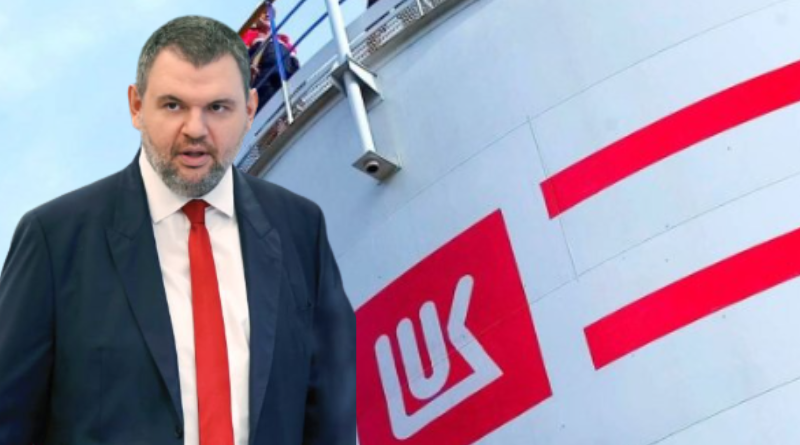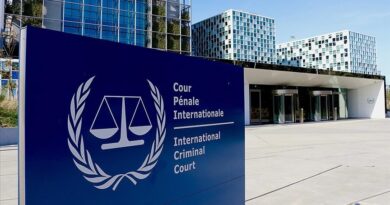When SANS Becomes the Deal-Maker on Lukoil’s assets sale
Following the publication in The Wall Street Journal revealing Boyko Borisov’s attempt to broker a deal involving speculation on the sale of Lukoil’s Bulgarian assets, the parliamentary majority dominated by Delyan Peevski and Borisov’s MPs reacted with remarkable speed. In less than 48 hours, they produced a surprise legislative amendment — a “special legislative operation” disguised as a change to the Investment Promotion Act.
Behind the dry legal language lies a simple fact: Peevski and Borisov are trying to place the State Agency for National Security (SANS) above the Council of Ministers, granting it an extraordinary right of veto over transactions involving “strategic enterprises.” In practice, this means that a political body, acting under the pretext of “national security,” could block or approve billion-euro deals without any public scrutiny or judicial review.
Support Independent Analysis
Help us keep delivering free, unbiased, and in-depth insights by supporting our work. Your donation ensures we stay independent, transparent, and accessible to all. Join us in preserving thoughtful analysis—donate today!
Circumventing European Law in Broad Daylight
The proposed change blatantly circumvents Regulation (EU) 2019/452, which established a harmonized investment screening mechanism across the EU. Brussels’ framework is built on three principles: objectivity, transparency, and accountability. Each screening decision must be based on objective criteria, subject to judicial oversight, and made public in its essential reasoning.
The Peevski–Borisov amendment replaces this system with arbitrary “opinions” by SANS, which are neither reasoned nor reviewable. National security cannot become a blanket justification for opaque political control over capital movements.
Moreover, by introducing a new layer of political interference, the amendment effectively turns SANS into an economic arbiter — a role that contradicts both Bulgarian law and the European acquis. The Council of Ministers’ subsequent “confirmation” of SANS’s opinion is a mere formality, much like the government’s rubber-stamp approval of the Botas gas deal — where the formal sanction diluted institutional accountability and masked personal responsibility.
The Political Matrix: Peevski’s Consolidation of Control
The Lukoil assets’ sale case is not an isolated incident; it’s a symptom of a deeper structural shift. After the failure of the lobbying campaign to lift Peevski’s Magnitsky sanctions, new channels of influence are being opened — now under the noble pretext of “protecting Bulgaria from Russian interests.” The irony is striking: the very same politicians who for years profited from Lukoil’s monopoly now invoke national security to control its exit.
In essence, the proposed law creates a mechanism for selective application of power: “national security considerations” become a political tool to block investors inconvenient to Peevski’s network and favor those aligned with it. This is not state capacity — it is state capture repackaged in the language of patriotism.
As critics point out, once every commercial deal is cast under the label of ‘national security,’ the rule of law fades, replaced by discretionary power.
Legal and Financial Risks: The Hidden Price of Arbitrariness
Invoking national security as a justification for blocking a deal is not an automatic legal shield. Both EU law and international investment law recognize that national security must be proportionate, non-discriminatory, and reasoned. Otherwise, the state faces exposure to international arbitration and investment claims running into billions.
Even though Bulgaria has joined the group of EU countries that have withdrawn from the Energy Charter Treaty (ECT), the treaty’s “sunset clause” still protects existing investments for 20 years after withdrawal. In other words, Lukoil’s investments remain covered until at least 2044.
Moreover, Bulgaria’s Bilateral Investment Treaty with Azerbaijan (2005) provides guarantees against expropriation and unfair treatment, offering access to ICSID or UNCITRAL arbitration. Given Azerbaijan’s importance as Bulgaria’s strategic gas supplier, a dispute involving SOCAR or an affiliated entity could have broader geopolitical consequences — well beyond the legal and financial dimensions.
In plain terms: a politically motivated blockage of the Lukoil sale by Peevsky could expose Bulgaria to multi-billion-euro claims — either from the seller, the buyer, or both.
“National Security” Is Not a Blank Check
Under the pretext of “urgency” and “geopolitics,” Peevski and Borisov are laying the groundwork for manual control of strategic deals, critical to the country’s energy and national security. They seek to replace institutions with obedience and law with discretion. Yet “national security” is not an alibi for arbitrariness. If Bulgaria genuinely seeks to protect its strategic interests, it must reinforce transparency, institutional independence, and judicial oversight — not suspend them in favor of individuals whose personal interests have long masqueraded as national priorities. Blocking a deal under the pretext of security, when it serves private gain, is little more than a thinly veiled form of extortion.
Ilian Vassilev




